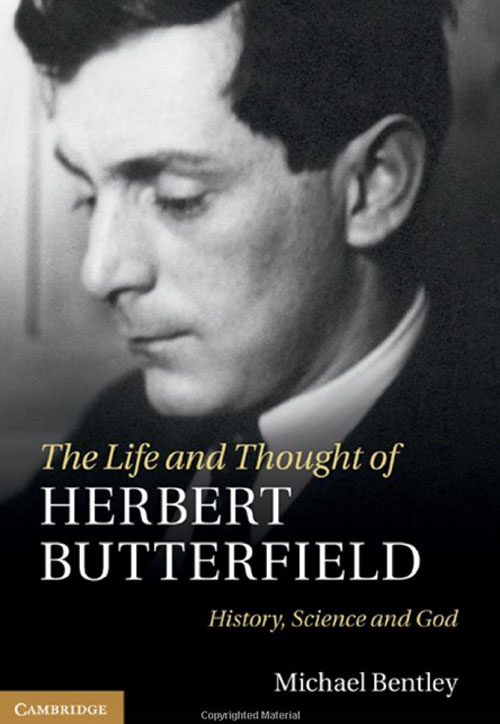The Life and Thought of Herbert Butterfield: History, Science and God
Article

The Life and Thought of Herbert Butterfield: History, Science and God by Michael Bentley
(Cambridge University Press), 2011
381pp., £50, hard, ISBN 978-1-10700-397-2
During the 1950s, the History establishment was dominated by the likes of Lewis Namier, Hugh Trevor-Roper, A.J.P. Taylor and Herbert Butterfield. Apart from Taylor whose essays and many of his books remain in print, the other three are largely forgotten, relegated to footnotes in history. Yet Butterfield's star appears to have reignited. Once recalled only for his lucid and radical The Whig Interpretation of History (1931) and the breadth of Christianity and History (1949), Sir Herbert Butterfield's contribution to western culture has undergone a surprising revaluation over the past twenty years. C. T. McIntire's Herbert Butterfield: Historian as Dissenter, (Yale University Press), 2004 and Keith Sewell's Herbert Butterfield and the Interpretation of History, (Palgrave Macmillan), 2005 played a significant role in this process. Over thirty years after his death and eighty years after the publication of his Whig Interpretation, Butterfield remains a controversial figure subject to the acerbic and conflicting judgments of colleagues and of later historians. John Vincent regarded Butterfield as one of the two ‘great historians of the twentieth century in England'; the other was Sir Lewis Namier who had a visceral dislike of Butterfield. Noel Annan once hailed Butterfield as ‘the most original historian of his generation' while J. M. Turner described him as ‘one of the great lay theologians', in company with C. S. Lewis and T. S. Eliot. By contrast, in his biography of G. M. Trevelyan, David Cannadine dismisses Butterfield in scathing terms as a ‘giggling, chain-smoking iconoclast, who seemed to be permanently about thirty-five years old...[and who]...never really matured into a seriously productive scholar or a major historian'.
What has been left out of this critique and what Bentley interrogates is the man himself. Yet the force of Butterfield's writings is weakened without some knowledge of the man behind them: his temperament, contexts and personal torments. Previous authors have been unable to supply a rounded portrait for lack of available material, particularly a dearth of sources for the crucial period before the outbreak of war in 1939. Michael Bentley's original biography, written at the invitation of Butterfield's family draws on private sources that were previously unseen enabling him to present a new Butterfield. The biography is divided into three sections. The first explores Butterfield as a private intellectual between 1900 and the end of the Second World War in 1945 while the final section examines him as a public intellectual. The central part considers the contours of an original mind, an articulate discussion of the three core elements in Butterfield's thinking: Science, God and History. To see this section as the meat in the sandwich may seem rather unfair given the brilliance of the reconstruction of Butterfield's life in the opening and concluding parts but, for me and I think Michael Bentley, it is the core of the book. The Butterfield that emerges from this was deeply troubled by self-doubt, driven by an urgent sexuality and plagued by an unending tension between history, science and God in a mind as hard and cynical as it was loving and charitable. It is to be hoped that those who read this eloquent study will be drawn to read or re-read Butterfield's own words.
This resource is FREE to all registered users of the website
If you are not already registered you can sign up for FREE Basic Website Access or Join the HA to access this content.

